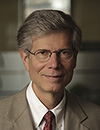Gordon Berlin to Step Down as President of MDRC
 Gordon Berlin, who has served as President of MDRC since 2004, announced today that he will step down in 2019. The MDRC Board of Directors has launched a national search for his successor. Berlin plans to remain until a new President has taken office.
Gordon Berlin, who has served as President of MDRC since 2004, announced today that he will step down in 2019. The MDRC Board of Directors has launched a national search for his successor. Berlin plans to remain until a new President has taken office.
On behalf of the MDRC Board of Directors, Chair Mary Jo Bane, Professor Emerita at the Harvard Kennedy School, made the following statement:
Gordon has been an exemplary leader of MDRC. Together with an extremely talented MDRC staff, he has helped make MDRC one of the nation’s preeminent institutions in developing solutions to difficult social problems. Gordon’s uncommon combination of vision, deep knowledge of policy and programs, and organizational leadership has put MDRC in a strong position for the future. We are all indebted to him.
Strategically positioned at the nexus of social science research, policy, and practice, MDRC has played a leading role since its founding in 1974 in building reliable, actionable bodies of evidence about effective education and social policies and programs to improve the lives of low-income people. What sets MDRC apart is its commitment to solutions, its focus on real-world implementation, and its conviction that progress depends on reliable, objective, and nonpartisan evidence.
Gordon Berlin, the organization’s fourth President, joined MDRC in 1990 after serving as Executive Deputy Administrator for Management, Budget, and Policy at the New York City Human Resources Administration. He also worked as a program officer and Deputy Director of the Ford Foundation’s Urban Poverty program and as a program analyst and project officer in the U.S. Department of Labor’s Employment and Training Administration.
Under Berlin’s leadership, the organization has dedicated itself over the last decade to refining its approach to meet the challenges of scaling up effective solutions — redoubling its focus on understanding the underlying causes of social problems, on identifying the most cost-effective solutions, and on partnering with the relevant systems and institutions to expand and continuously improve those solutions. Recognizing that effective programs must successfully identify, recruit, and engage participants in services they value, MDRC has strengthened its capacity to answer “how and why” questions about program design and implementation that are critical to understanding how to improve, sustain, and scale programs. To that end, MDRC has built best-in-class capabilities in data infrastructure and security, data analytics, programmatic technical assistance, and behavioral science to help managers, line staff, and participants work more effectively together to accomplish their goals.
Berlin made the following statement:
It has been a privilege to lead —and learn from — the talented team of people at MDRC, where we have worked together (with our many partners) to improve the lives of low-income people and to make the world we live in more just, fair, and equal. The organization’s substantial contributions to the field in both building evidence and using evidence to drive improvements in policy and program effectiveness are the result of the MDRC Board’s consistent vision and high standards; of the committed, talented, and passionate MDRC staff who bring diverse experiences and skills to our work; of our remarkable partners in localities around the country who are solving problems and delivering services to those most in need; of the resilience and determination of the people who participate in programs; and of the public and private funders who believe in and support MDRC’s mission.
It has been my great honor to play a role in this extraordinary organization, first as a funder of MDRC at the federal Department of Labor and later at the Ford Foundation, then as a user of MDRC’s work at New York City’s Human Resources Administration, and finally as a member of the staff and eventually as President. Working with the people of MDRC has brought meaning, purpose, and a sense of accomplishment to my life, and I look forward to continuing to contribute to the future of this uniquely valuable institution.





